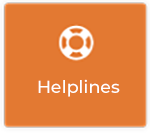UP2US – Lesson 9: Making a stand against cyber bullying (Part 1)

Students will decide on the specific details of a school-wide anti-bullying campaign to encourage a collective response to bullying.
- +Curriculum Links
- Junior Cycle SPHE Short Course Strand 3:
Anti-bullying: Develop guidelines for promoting collective responses to bullying
Additional learning outcomes:
Strand 4: Dealing with tough times. Highlight coping strategies for managing life’s challenges. - +Resources and Methodologies
- Resources:Overhead projector, Internet access, watchyourspace.ie, Copies of Worksheet 9.1
- Methodologies: Group work, Presentation, Polling, Group discussion, Internet research
- +Learning Outcomes
- Learning outcomes:
- Students will have researched and evaluated the merits of different anti-bullying campaigns.
- Students will have decided on a campaign that will address the issue of bullying in their particular
community. - Students will have begun to design elements of the campaign and to assess their effectiveness.
- +Key Skills
- Staying well, Communicating, Being creative, Working with others, Managing information and thinking
- +Announcing an awareness-campaign competition
- Announce to the class that they will be split into groups and that each group will be expected to organise an anti-bullying campaign. Each group will create an artefact and aim to get the greatest possible collective response to bullying. Groups will compete against each other. The winners will be picked based on two criteria: the quality of the artefacts that they produce and the number of people they encourage to participate in their campaign. Students will have a week to run their campaign starting from today’s class. (You may choose to give students an extra week to run their campaign so that they have an additional class in which to prepare campaign materials.)
- +Activity 9.1 - Brainstorming an anti-bullying awareness campaign (15 minutes)
- STEP 1: Students should be split into groups, and each group should be given Worksheet 9.1 to help develop and refine their ideas.
- STEP 2: Students should use this time to share their ideas for anti-bullying campaigns. After sharing their ideas with each other, the students should set about completing the worksheet to help them structure their campaigns. Ideally the students should have access to the internet to allow them to research other campaigns.
- STEP 3: When the students have completed the worksheet they should be ready to present their ideas to the class for feedback.
- +Activity 9.2 - Presentation of ideas (10 minutes)
- STEP 1: Each group should get one minute to present their idea and one minute to
take comments and suggestions from their classmates. The feedback from classmates should help students to improve their campaigns. - +Activity 9.3 - Setting roles, deadlines and meeting times (5 minutes)
- STEP 1: Students should each be assigned a role for the organisation of the campaign. These roles will be decided by the students in their groups. All students will need to be involved in the production of an artefact as they will need the artefact for their assessment task. The artefact should refer to at least one of the anti-bullying learning outcomes and should make use of knowledge gained in previous lessons.
- STEP 2: The students should spend the rest of the class meeting with their team and planning how they will carry out their campaign.
Assessment: Students will be assessed on the quality of the artefact they produce and also on the effectiveness of the campaign in encouraging collective responses to bullying
- +Activity 9.4 - Homework activity
- STEP 1: Students should have role-specific tasks to complete before the next class.
- STEP 2: The teacher should outline immediate expectations and timelines for each group.
- STEP 3: Students should also take some time to reflect in their journals on the experience of choosing the task and how they find working on the project.







